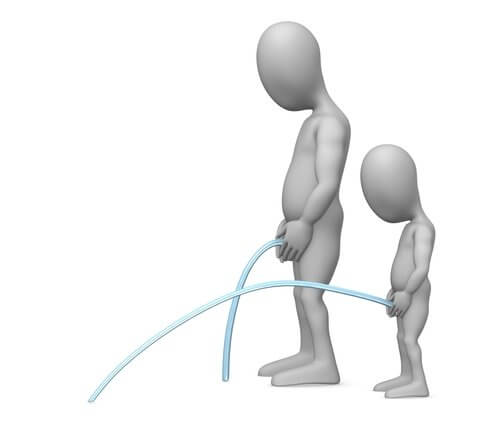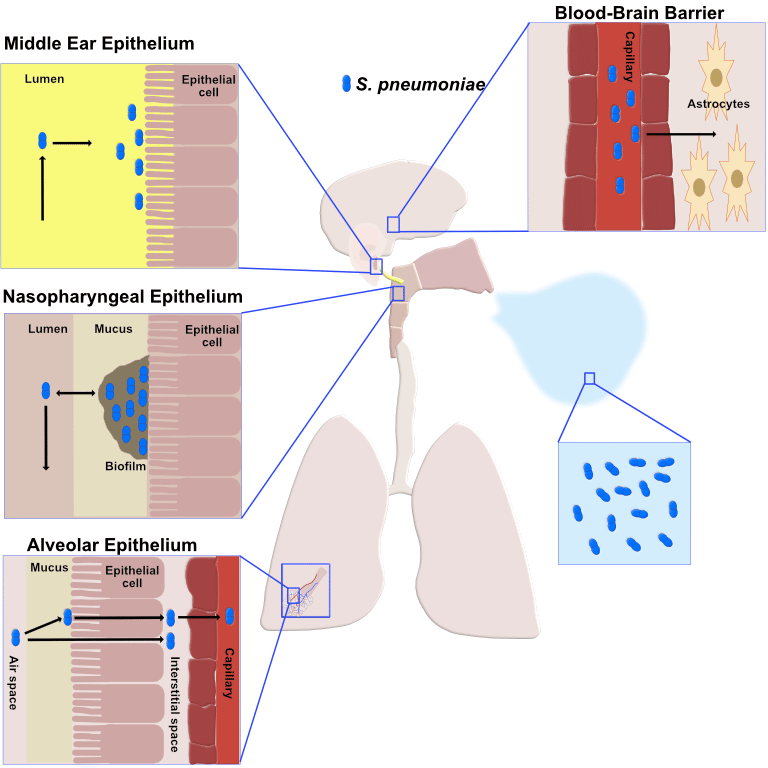Similarities And Differences Between Utis And Stds
UTIs share symptoms similar to STDs and are misdiagnosed more often than you may think. According to the American Society for Microbiology, 64 percent of the patients with sexually transmitted infections were actually diagnosed as having a UTI instead. This is problematic. Not only are women being needlessly prescribed a UTI treatment , but it may also cause an undiagnosed STD to develop into a more serious issue. In the beginning stages, many STDs are treatable, but the further they are allowed to progress, the more complicated and expensive treatment becomes.
The Value Of A Diagnosis
If you develop any of the symptoms listed above, you should see a doctor for an evaluation. Your doctor may be able to diagnose herpes just by looking at your blisters or sores, and there are also lab tests to diagnose herpes.
Knowing you have genital herpes allows you to take steps to reduce outbreaks and to protect your sexual partner or partners.
According to the Centers for Disease Control and Prevention , the outlook for an individual and the type of guidance that person needs depend on which virus is causing the genital herpes, HSV-1 or HSV-2. Recurrent outbreaks are much more frequent for genital herpes caused by HSV-2, as compared with cases caused by HSV-1.
The CDC recommends testing to find out which virus is involved.
The CDC also says that people with genital herpes should be tested for HIV infection. If you have herpes, its easier for you to develop an HIV infection because herpes sores give HIV an open path into your body.
How Can You Prevent Sexually Transmitted Infections
Here are some ways to help prevent STIs.
- Limit your sex partners. Sex with one partner who has sex only with you can reduce your risk of getting an STI.
- Talk with your partner or partners about STIs before you have sex. Find out if they are at risk for an STI. Remember that it’s possible to have an STI and not know it.
- Wait to have sex with new partners until you’ve each been tested.
- Don’t have sex if you have symptoms of an infection or if you are being treated for an STI.
- Use a condom every time you have sex. Condoms are the only form of birth control that also helps prevent STIs.
- Don’t share sex toys. But if you do share them, use a condom and clean the sex toys between each use.
Vaccines are available for some STIs, such as HPV. Ask your doctor for more information.
Read Also: How Common Is Herpes 2
Spinal Cord Diseases And Injuries
Bladder problems are common among multiple sclerosis patients and include urgency of urination, an overactive bladder, and a bladder that does not fully empty. Diet modifications and nerve stimulation procedures may be able to help patients control these issues. Other neurological conditions are closely associated with frequent urination in women too, especially if a spinal cord injury is involved. In healthy women, messages are sent from the bladder to the brain when the bladder is full. But with a spinal cord disease or injury, these messages may not be sent or received.
How Do I Know If Its Frequent Urination

The characteristics of frequent urination are easy to spot. If you feel the need to pee more than four to eight times in one day, odds are that you have issues with frequent urination. Your healthcare provider may ask you a few questions to confirm this symptom. These could include questions like:
- What medicines are you taking?
- How much fluid do you usually drink?
- Are you drinking more than usual?
- Do you drink alcohol or caffeine?
During a visit, the healthcare provider may also take a urine sample to test for bacteria and white blood cells. UTIs are typically discovered this way. An ultrasound could be used to look for tumors or other structural issues that might be causing frequent urination. Another test you may have is a cystoscopy, which is used to look inside your bladder.
Also Check: How To Reduce Herpes Breakouts
What Are The Symptoms Of Genital Herpes
Genital herpes most often appears as one or more blisters on or around the genitals or rectum. When these blisters burst they leave the tender sores known as ulcers. The first time a person has a herpes outbreak, the ulcers may take two to four weeks to heal. The next outbreaks may not occur for weeks, months, or even later. When they do, they usually are less severe than the first outbreak. Herpes infection doesn’t go away, but the outbreaks tend to become less frequent over time.
- Numbness, tingling, or burning in the genital region
- A burning sensation while urinating or having intercourse
- Painful urination, difficulty urinating, or a frequent need to urinate
- Watery blisters in the genital area
Many people with recurrent herpes experience warning signals up to 48 hours before an outbreak. These may consist of tingling, itching, or pain at the site of the eruption, or pain running down into the buttocks or to the knees.
A doctor can diagnose genital herpes by looking at the outbreak and taking a sample of tissue or fluid from the sores. There are also blood tests for HSV-1 and HSV-2. Although they cant pinpoint when the infection was acquired or predict when an outbreak is likely to happen again, they are useful for diagnosing the condition if the outbreak is healing or has already healed.
Medications are available to treat and reduce or prevent recurrent herpes outbreaks.
Why You Should Go To A Sexual Health Clinic
You can see a GP, but they’ll probably refer you to a sexual health clinic if they think you might have genital herpes.
Sexual health clinics treat problems with the genitals and urine system.
Many sexual health clinics offer a walk-in service, where you do not need an appointment.
They’ll often get test results quicker than GP practices and you do not have to pay a prescription fee for treatment.
Also Check: How Can Genital Herpes Be Treated
Four Stds That Cause Frequent Urination
What STD causes frequent urination? When you urinate with more frequencywithout an increase in urineyou may want to seek out a professional for medical advice, diagnosis, and treatment. While your problem may not always be an STD, you should not ignore any condition that causes you to urinate with more urgency.
Weve outlined each STD that causes frequent urination so you can be proactive about your sexual health and get tested the moment you notice a problem. STDs that cause frequent urination can be severe, so forsame-day STD testing, find a clinic near you immediately.
Genital Herpes: The Painful Facts About A Tricky Virus
There are two main types of herpes simplex virus infections, HSV-1 and HSV-2. Generally speaking, HSV-1 is responsible for those annoying cold sores that can pop up during times of stress or lack of sleep. Genital sores are usually caused by HSV-2. Many people dont realize that HSV-1 can cause genital ulcers as well, though these tend to be less severe and less likely to recur.
It can take as little as a few days and up to a week after a person has been exposed before any herpes symptoms appear. First, there will be redness and tingling, followed by small painful bumps that progress to fluid-filled âblisters.â Eventually, these burst to form shallow skin ulcers which then crust over, with gradual healing over a couple weeks. An initial genital herpes infection can be very painful, also cause fever, body aches and fatigue. Recurrent outbreaks tend to cause less severe symptoms. Rarely a genital herpes infection can cause inflammation of the membrane that covers the brain .
Recommended Reading: Genital Herpes Treatment Over The Counter
Path To Improved Health
There are several conditions that can cause painful urination. The most common is a urinary tract infection . The urinary tract consists of the kidneys, bladder, and urethra. The urethra is the tube that carries urine out of the body. Bacteria can build in the tract when waste isnt removed or the bladder isnt emptied correctly. This causes an infection. Swelling and irritation from the infection can make urination uncomfortable.
Sometimes painful urination can occur even if you dont have a UTI. Other causes include:
- Medicines. Certain medicines, like some used in cancer chemotherapy, may inflame the bladder.
- Something pressing against the bladder. This could be an ovarian cyst or a kidney stone stuck near the entrance to the bladder.
- Vaginal infection or irritation.
- Sensitivity to chemicals in products. Douches, vaginal lubricants, soaps, scented toilet paper, or contraceptive foams or sponges may contain chemicals that cause irritation.
- Sexually transmitted infections. Gonorrhea, chlamydia, or herpes can cause urination to be painful for some people.
- Prostate infection
What Is A Urinary Tract Infection
A urinary tract infection UTI for short is an extremely common infection of one or more parts of the urinary tract, which consists of the urethra, the bladder, the ureters, and the kidneys.
While the body has systems in place to help keep bacteria from entering, there are times when germs get into the urethra. In many cases, bacteria don’t get any further and are cleansed during urination. However, sometimes bacteria manage to proliferate in the urethra or make their way further into the urinary tract, leading to infection. Most urinary tract infections are bladder infections, but UTIs can impact the kidneys too, which is a more serious condition.
So, with that in mind, how could genital herpes lead to a UTI?
Also Check: What Makes Herpes Outbreaks More Frequent
What Is Herpes Ii
Herpes II is a sexually transmitted viral infection, which often produces painful sores, usually in the genital area. Once infected, an individual may carry the virus and be subject to recurrent bouts of infection. Some estimate that as many as 20 percent of the adult population in the United States has been exposed to the virus.
How Is It Treated

Genital herpes can be treated, but it cannot be cured.Anti-viral medicines can make outbreaks:
Living with genital herpes causes some people to:
- Feel embarrassed or ashamed
- Worry about infecting a sexual partner
- Worry that having herpes will affect relationships with sexual partners
- Avoid dating or sexual relationships
Most people with herpes are able to live with the virusand manage their outbreaks. Talking to trusted healthcare providers and friends can help. Your health careprovider can talk to you about medicines that treatoutbreaks and about ways to reduce the chance ofpassing the virus on to a sexual partner.
Medicines can help lower the chance that you will pass the virus to others.
Recommended Reading: Can Chlamydia Turn Into Herpes
What Are Genital Herpes Outbreaks Like
Lots of people who have been infected with either HSV-1 or HSV-2 don’t know it because they have never noticed any signs or symptoms.
People often mistake a herpes outbreak for another problem. You may think you have the flu, another STD, or that you have pimples or ingrown hairs, when in fact you have genital herpes symptoms.
Can Genital Herpes Be Prevented
The only sure way to keep from getting genital herpesor any other sexually transmitted infection is to not have sex. If you do have sex, practice safer sex.
- Before you start a sexual relationship, talk with your partner about STIs. Find out whether he or she is at risk for them. Remember that a person can be infected without knowing it.
- If you have symptoms of an STI, dont have sex.
- Dont have sex with anyone who has symptoms or who may have been exposed to an STI.
- Dont have more than one sexual relationship at a time. Having several sex partners increases your risk for infection.
- Use condoms. Condom use lowers the risk of spreading or becoming infected with an STI.
- Dont receive oral sex from partners who have cold sores.
Taking medicine for herpes may lower the number of outbreaks you have and can also prevent an episode from getting worse. It also lower the chances that you will infect your partner.
If you are pregnant, you should take extra care to avoid getting infected. You could pass the infection to your baby during delivery, which can cause serious problems for your newborn. If you have an outbreak near your due date, you probably will need to have your baby by cesarean section. If your genital herpes outbreaks return again and again, your doctor may talk to you about medicines that can help prevent an outbreak during pregnancy.
Don’t Miss: Do Herpes Itch Or Burn
Is Frequent Urination A Symptom Of Diabetes
Frequent urination is one of the most common symptoms of diabetes. If you are peeing more than usual, it may be a sign that your blood sugar levels are too high and your kidneys are eliminating excess sugar from the bloodstream.
Usually, when the kidneys create urine, they reabsorb filtered sugar and direct it back into the bloodstream. In people with diabetes, blood sugar levels get too high and the kidneys cannot keep up, so excess sugar is eliminated through the urine. This process can cause dehydration and leave you feeling excessively thirsty. As you drink more fluids to satiate your thirst, it leads to frequent urination.
What Stds Cause Frequent Urination
This is a question that many of us have had to ask ourselves and Google. Whether its early childhood programming or anxiety, whenever something is wrong down there, we jump to STDs. In some, this causes panic and embarrassment. This is largely because weve previously associated sexually transmitted diseases with dirty people and people who have unsafe sex. Well, all of those theories have been proved wrong by modern science. We now know that anyone can be at risk for an STD, even if youre only active with one person.
This article is going to look at the STDs that cause frequent urination and the symptoms of each disease. This is a key factor in narrowing down the possibilities. However, STDs are not the only cause of frequent urination. Here is a list of the possible causes:
- Bladder infection
- Urinary tract infection
The items marked with a * are the only STDs on the list. As you can see, STDs are not the majority cause of frequent urination. In fact, the most frequent cause is a urinary tract infection. Of course, you dont want to read everything about all of these possible causes. Instead, lets focus on 5 causes of frequent urination:
Also Check: Do Genital Herpes Bumps Go Away
Testing For Genital Herpes
If you think you may have genital herpes you should make an appointment with your GP or local sexual health services.
If there are symptoms present such as blisters, sores and ulcers, your doctor or nurse may be able to make a diagnosis straight away.
If you have visible blisters, your doctor or nurse may take a swab for testing, to check if this is herpes and what type. This swab can also test for another STI which causes blisters called syphilis.
The genital herpes swab tests are very reliable, though if the ulcer is too dry then it may be less likely to find a positive result.
Donât Miss: Do Herpes Outbreaks Eventually Stop
How To Prevent Dehydration From Occurring
The best way to prevent dehydration is to drink plenty of fluids. It is also important to stay cool and avoid sweating too much. If you are sick, it is important to drink plenty of fluids and see a doctor if your symptoms persist. You can also help prevent dehydration by eating foods that contain water, such as fruits and vegetables.
Don’t Miss: How Soon Can I Test For Herpes
Is Frequent Urination Serious
The severity of frequent urination ultimately depends on the cause.
- Not serious: In some cases, it is just a matter of adjusting your medications or the amount of liquids that you drink.
- Serious: In other cases, though, quality of life can be seriously affected.
What is causing your frequent urination?
There are rare and unusual causes of frequent urination, such as the following.
- Chronic inflammation of your bladder
- Tumors in your bladder, urinary tract, or pelvis
- Stroke or spinal cord injury: One of the effects can be damage to the nerves of your bladder, resulting in increased frequency of urination and less control.
- Dementia: This can cause lessening of control over many body functions.
What Causes Frequent Urination

Many factors influence how often you urinate, including habits, medical conditions, and specific life circumstances. Here are the common causes of frequent urination:
Interstitial cystitis :
Read Also: Do Herpes Go Away Without Treatment